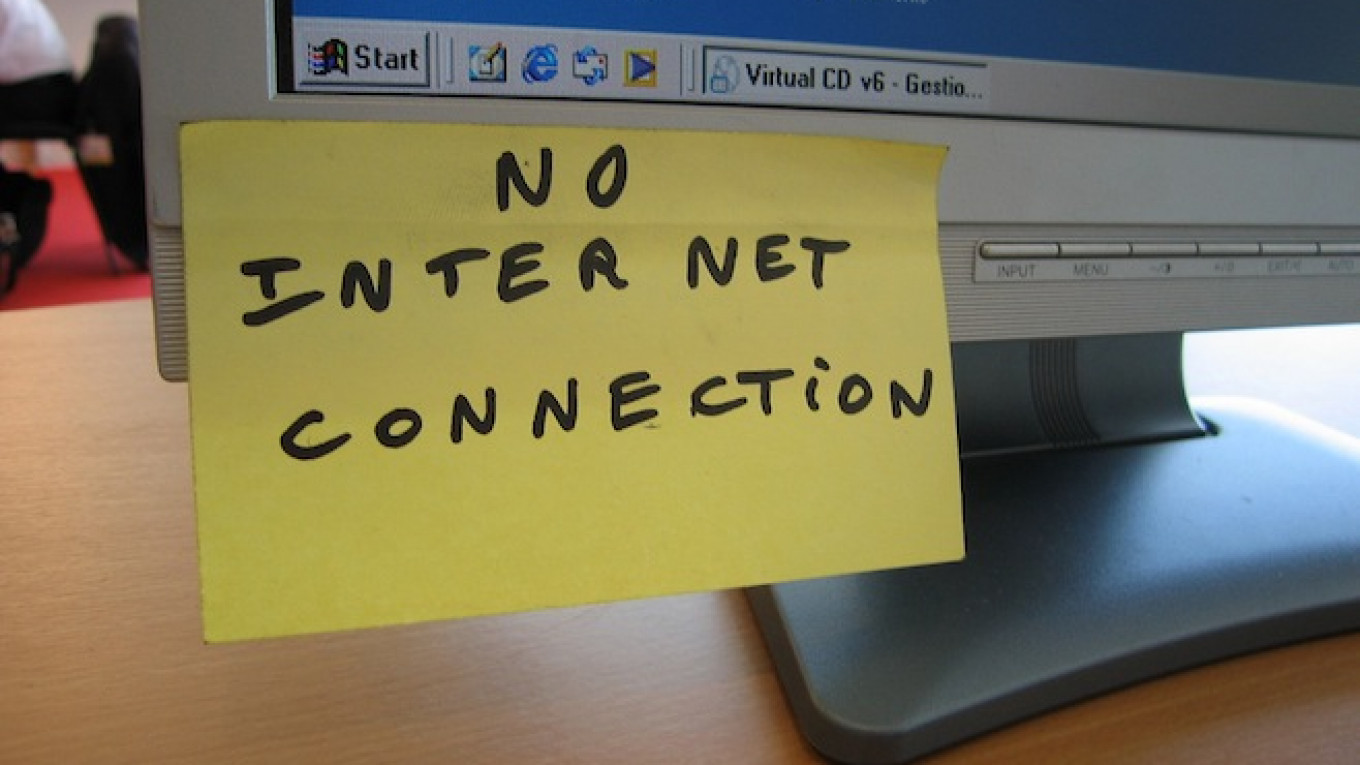A court in the Far Eastern city of Khabarovsk has ordered the local Internet provider to "restrict" access to Wikipedia and two other websites, ruling that their pages contained "extremist" materials, a court official said.
Acting on a petition filed by a local prosecutor's office, the court ruled that the regional branch of state telecoms giant Rostelecom had to "restrict access" to the three websites: Wikipedia, an online encyclopaedia; Yandex, Russia's leading search engine; and movie listings and review website Kinopoisk.
Prosecutors said the websites included citations of Nazi leader Adolf Hitler's manifesto Mein Kampf and unspecified other "extremist materials" that are banned in Russia, court official Natalya Pakulova said, Interfax reported.
Russia already blocks access to websites run by Islamic fundamentalists and other groups it considers to have links to terrorism, and has recently expanded it suppression of "extremist" websites to pages linked to the Ukrainian protest movement.
Earlier this week, Internet monitoring agency Roskomnadzor said in a statement that it had shut down more than a dozen pages on the VKontakte social network, saying that they promoted "Ukrainian nationalist groups" and supported terrorism.
A Message from The Moscow Times:
Dear readers,
We are facing unprecedented challenges. Russia's Prosecutor General's Office has designated The Moscow Times as an "undesirable" organization, criminalizing our work and putting our staff at risk of prosecution. This follows our earlier unjust labeling as a "foreign agent."
These actions are direct attempts to silence independent journalism in Russia. The authorities claim our work "discredits the decisions of the Russian leadership." We see things differently: we strive to provide accurate, unbiased reporting on Russia.
We, the journalists of The Moscow Times, refuse to be silenced. But to continue our work, we need your help.
Your support, no matter how small, makes a world of difference. If you can, please support us monthly starting from just $2. It's quick to set up, and every contribution makes a significant impact.
By supporting The Moscow Times, you're defending open, independent journalism in the face of repression. Thank you for standing with us.
Remind me later.






